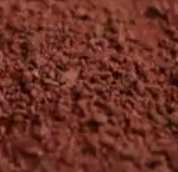Solvent Red 23 or CI 26100 is a chemical compound, a disazo synthetic red dye also known by the name , Sudan III
Chemical name: 1-[(4-phenyldiazenylphenyl)diazenyl]naphthalen-2-ol
Description of the raw materials that form it:
- Chemical reagents. Solvent Red 23 can be synthesized using a combination of specific chemical reagents, such as organic or inorganic dyes, chemical precursors, and appropriate solvents.
Summary of the industrial chemical synthesis process step-by-step:
- Selection of reagents. Suitable reagents are selected that correspond to the desired specifications for the synthesis of Solvent Red 23.
- Accurate measurement:. The selected reagents are precisely dosed according to specific proportions required to achieve the desired color and characteristics.
- Chemical reactions. The reagents are mixed together in an appropriate reactive system, such as a chemical reactor, and subjected to specific chemical reactions. These reactions may involve condensation processes, oxidation or reduction processes, among others, to form Solvent Red 23.
- Monitoring of reaction conditions. The reaction conditions, such as temperature, pressure, and pH, are monitored and controlled to ensure that the reactions occur efficiently and in a controlled manner.
- Purification of the product. The reaction product undergoes purification processes to remove any impurities or unwanted residual reagents.
- Characterization of the product. Solvent Red 23 is characterized through chemical and physical analyses to confirm its identity and evaluate its properties, such as color, solubility, and stability.
- Packaging of Solvent Red 23 into appropriate containers for distribution and use.
It comes in the form of brown powder.

What it is used for and where
It is a restricted ingredient as IV/51 (CI 26100) II/1353 (Solvent Red 23; CI 26100: when used as a substance in hair dye products) a Relevant Item in the Annexes of the European Cosmetics Regulation 1223/2009. Substance or ingredient reported: 1-(4-(Phenylazo)phenylazo)-2-naphthol
Cosmetics
Colorant to avoid. It is an ingredient that makes the final product more attractive from an aesthetic point of view, but can pose a potential health risk with undesirable side effects especially when used continuously as it can be absorbed through the skin or mucous membranes.
Safety
It is an ingredient that has some important health-related contraindications: it should not come into contact with mucous membranes.
Use in hair colouring products is prohibited.
The problem associated with azo dyes (monoazo or diazo) is photocatalytic degradation leading to eventual oxidation and subsequent formation of impurities such as aromatic amines some of which have carcinogenic activity.
- Molecular Formula C22H16N4O
- Molecular Weight 352.4 g/mol
- CAS 85-86-9
- UNII ND733RX3JN
- EC number 201-638-4
- DTXSID3041742
Synonyms:


![]() Solvent Red 23
Solvent Red 23